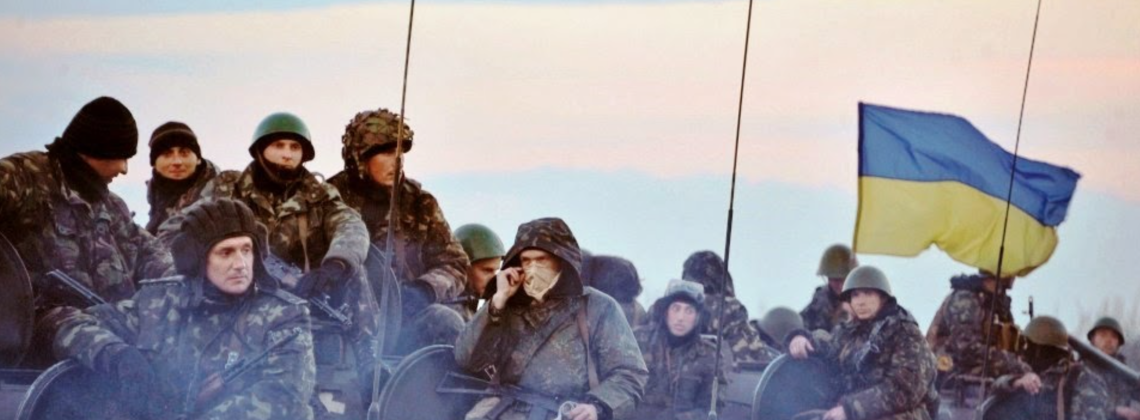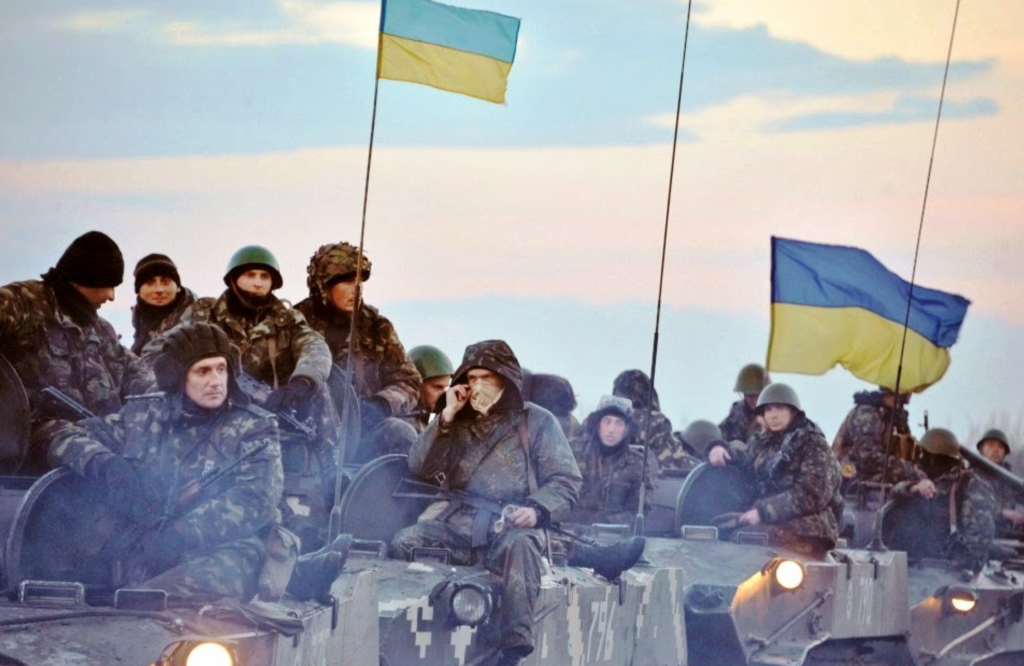

For many reasons, it’s a question we would rather not consider
It’s been almost a month since the editors of Current invited me to write something on the second anniversary of Russia’s full-scale invasion of Ukraine. In that time, I’ve made some notes, opened Word to start writing, stopped, tried again, stopped again, and am finally sitting down the morning before the deadline to force myself at least to get something on paper.
For the second year in a row I’ve been asked to write something marking the anniversary, February 24. I wanted to write this piece, and I’m honored to be asked. I’m grateful for the opportunities I’ve been given to write about Ukraine—grateful that the editors continue to prioritize coverage of this war when so many other outlets have quietly dropped it from their front pages.
I think the reason I’ve put off writing this piece is because I don’t know what to say that I haven’t already said. My nonfiction writing and my publisher-mandated social media presence have, for the past two years, been devoted almost exclusively to the war.
And I don’t know how to say what I think without bitterness or anger or hopelessness. This essay, the editors suggested, could ask the question, “What does this anniversary mean?” Well, what does this anniversary mean except that the vast majority of the Western public has clearly moved on, content to let Russia do “whatever the hell they want” because they can’t see that it affects them all that much? What does it mean except that Western governments prefer stalemate to outright Ukrainian victory? What does it mean except that for too many, the elusive possibility of normalized relations with Russia is, in practice, a higher priority than Ukrainian lives?
I’ve lost track of how many times Vladimir Putin and his officials have made it clear that their goal remains the complete subjugation and erasure of Ukraine, as their troops destroy Ukrainian libraries, ban the Ukrainian language, kidnap and brainwash Ukrainian children, castrate Ukrainian POWs, persecute Ukrainian Christians, and refuse healthcare to holders of Ukrainian passports. I’ve lost track of how many times Western voices on both the right and the left have scrambled to assure us that no, actually, Putin is signaling that he wants peace, that so many lives could be saved if Ukraine just stopped resisting—despite the exhaustive evidence that Russian occupation, which is the fate that awaits all of Ukraine if it does stop resisting, means torture chambers, slave labor, and mass graves.
In the two years since the beginning of the full-scale invasion, I don’t think I’ve felt as hopeless about the outcome of the war as I’ve felt over the past few weeks.
I hesitate to write that—safe as I am in suburban America, watching the war from afar. Doom and gloom don’t help anyone. They become an excuse for inaction, and Ukraine needs action and support from its allies more than ever. But there it is.
Just days ago a MAGA propagandist traveled to Moscow to platform Putin and his jaw-droppingly insulting and harmful revision of World War II history. Poland, according to Putin, was responsible for starting the war because it refused to negotiate with Nazi Germany, thereby “forcing” Hitler to invade. Clearly, the whole ahistorical rant was intended to serve as justification for Russia’s invasion of recalcitrant Ukraine. It either didn’t occur to Putin that Russia is playing the role of Nazi Germany in this analogy or it didn’t bother him in the first place.
But the worst thing about it wasn’t Putin’s bad history or MAGA subservience to Russian fascism. Neither is particularly surprising at this point. No, the worst thing was that in the subsequent New York Times coverage of the interview this egregiously malicious twisting of history wasn’t even brought up, much less refuted. America’s “newspaper of record” let Putin’s disinformation slide without comment—and then went on to say that the interview was, in fact, an olive branch to the West.
I honestly don’t know where we go from there.
Watching the Oscar-nominated documentary film 20 Days in Mariupol when it premiered on streaming services in the U.S. last November brought back vivid memories of the early days of the full-scale invasion. I remember the gut-wrenching nausea I felt when the news reports began to filter through that first night. I remember wondering, so stupidly, whether the fact that Russian troops had crossed the border meant that there had been Ukrainian casualties or whether it was all somehow miraculously bloodless. I didn’t sleep for the next three days; I couldn’t put my phone down. I was moderating a friend’s debut book launch event that Thursday night, and it was surreal to try to celebrate her huge achievement when I couldn’t stop crying.
But I also remember the fleeting sense that the world was with Ukraine. My first historical novel, Traitor, had also—in an accident of timing—been released in paperback that same week, and I remember getting an unexpected message from one bookseller telling me how glad he was to have it to put into readers’ hands, to give them some of the context for this invasion. Another bookseller messaged to ask about the best place to donate. On Instagram, Nashville-area friends were circulating a viral post, encouraging everyone to support our local Ukrainian grocery store. Ukrainian flags and decals were everywhere, it seemed. I used to be able to count the bumper stickers as I drove.
That all seems unthinkable now. It’s been so long since a non-Ukrainian friend (or a not-likewise-invested friend) has reached out to me about Ukraine.
I don’t see how Ukraine can win this war without continued urgent, tangible support from its Western allies. Ukrainian troops are already reporting ammunition shortages as Congress dithers on further aid. And I don’t see how the vital necessity of a Ukrainian victory can be driven home here in the U.S. when Russian disinformation goes unchecked in our mass media—when even our most reputable outlets are trying to sell the foolish idea that Putin wants peace.
I don’t want to get another email next January, asking me to write another one of these pieces for the third anniversary. I hope the war is over by then. I hope Ukraine has won. But given what I’ve seen since February of 2022, the one thing I know is that time is not on Ukraine’s side.
Amanda McCrina writes historical fiction about Poland and Ukraine during World War II and the Cold War, inspired by her own family’s heritage. Her latest is I’ll Tell You No Lies (FSG, 2023). She lives outside Nashville, Tennessee.
Photo: Ilia Pitalev – Kommersant Photo/Getty Images